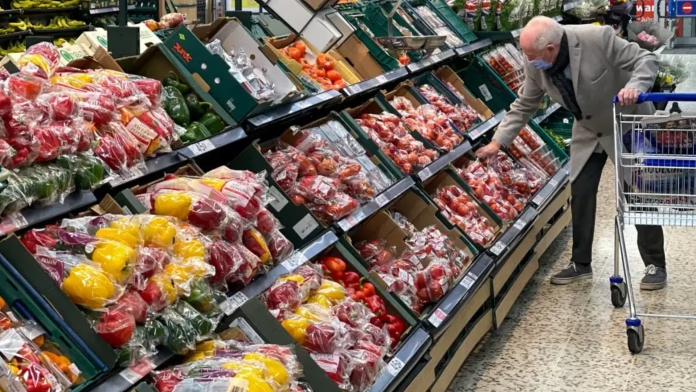Canada’s Prime Minister, Justin Trudeau, has issued a warning, indicating that taxes may be imposed if grocery retailers do not implement measures aimed at “stabilizing” food prices.
According to a document published on Trudeau’s web portal on September 14th, executives from the nation’s biggest food retailers have been summoned to a meeting in Ottawa next week to deliberate on proposed measures.
“In recent years, large grocers have been making more money, all while the cost of groceries has risen drastically and families are struggling to put food on their tables,” the document, covering the text of a speech given by the prime minister at a press conference in London, Ontario, read.
“We are also looking at all tools at our disposal, and we are not ruling out the use of tax measures, in order to restore the grocery price stability that Canadians expect.”
Canada’s government also intends to take steps to improve competition across the economy, “with a focus on the grocery sector”, it said.
Proposed changes to the Competition Act include empowering the competition regulator to intervene “in cases where significant retailers hinder smaller competitors from establishing nearby operations, resulting in diminished competition and consumer choices.”
According to Reuters, Canada’s top five food retailers, including Loblaw, Sobeys, and Metro, have been given until October 5th to develop plans aimed at stabilizing prices.
“Our government is taking concrete actions to stabilise food prices and improve competition in Canada,” François-Philippe Champagne, the minister of Innovation, Science and Industry, said in the document.
“That’s why the industry needs to step up with meaningful solutions. But that’s not all. We also need updated tools to modernise our competition environment. Our government will continue to work day-in and day-out to bring relief to consumers and increase competition.”
Sylvain Charlebois, a professor specializing in food distribution and policy at Dalhousie University in Halifax, proposed that the Canadian government draws inspiration from developments in France.
In August, France’s Finance Minister, Bruno Le Maire, engaged in two days of discussions with retailers and food producers, urging them to lower consumer goods prices. This call to action came after leaders of Carrefour and Les Mousquetaires raised concerns that inflation was causing people to reduce their spending on food.
Le Maire’s negotiations resulted in an agreement with retailers and certain manufacturers, establishing price limits and reductions on select products.
Speaking on Bloomberg Television about Canada’s proposals, Charlebois said they are “not really a signal you want to send if you want more competition and more investment into the country”.
He added: “If you want more competition, you need more players and more players who think they can make money. If you have a government putting brakes on food prices, guess what’s going to happen. Companies will sleep.”
In July, grocery inflation in Canada stood at 8.5%, showing a slight deceleration from June’s annual rate of 9.1%. However, it continues to outpace the overall headline rate for all items, which was at 3.3%, even though that had decreased from 2.8% the previous month.
Charlebois anticipates that food price hikes in Canada may decrease to approximately 5-7% by the end of the year, with the gap compared to the headline measure expected to narrow to near zero by April or May of the following year. Nevertheless, he cautioned about the potential repercussions of implementing price controls.
“If Loblaw is forced to bring down prices, it’s going to turn around and put more pressure on processors, family businesses and farmers who deal with grocers. You have to think about the entire supply chain.”





